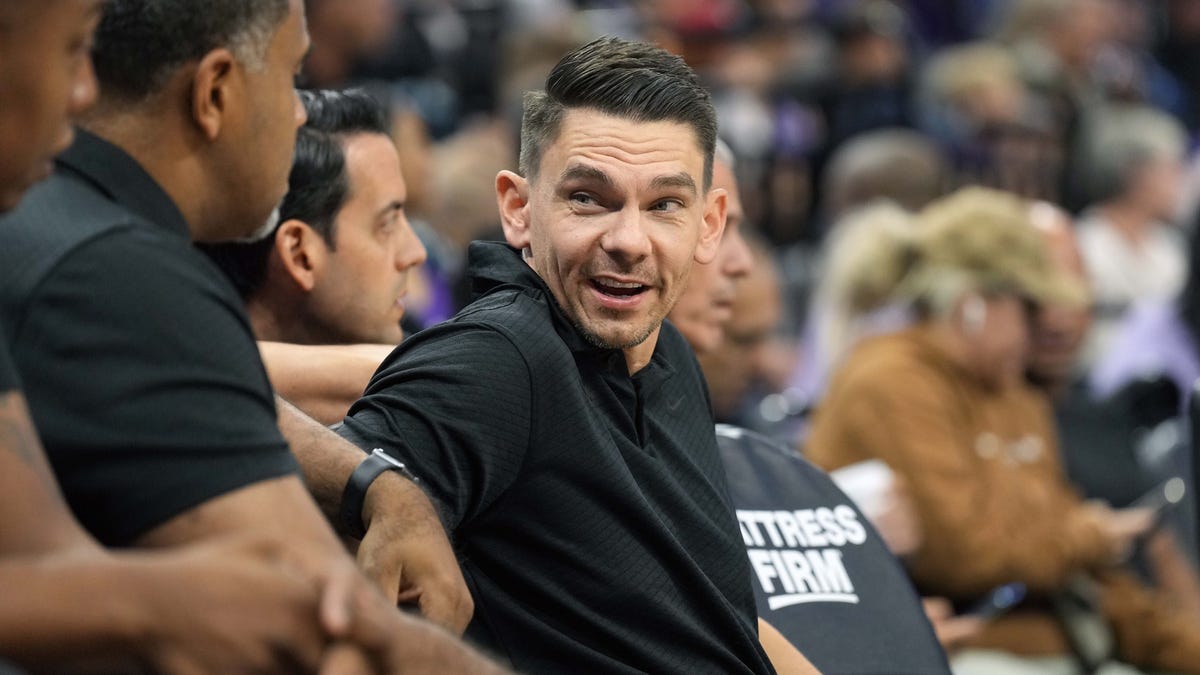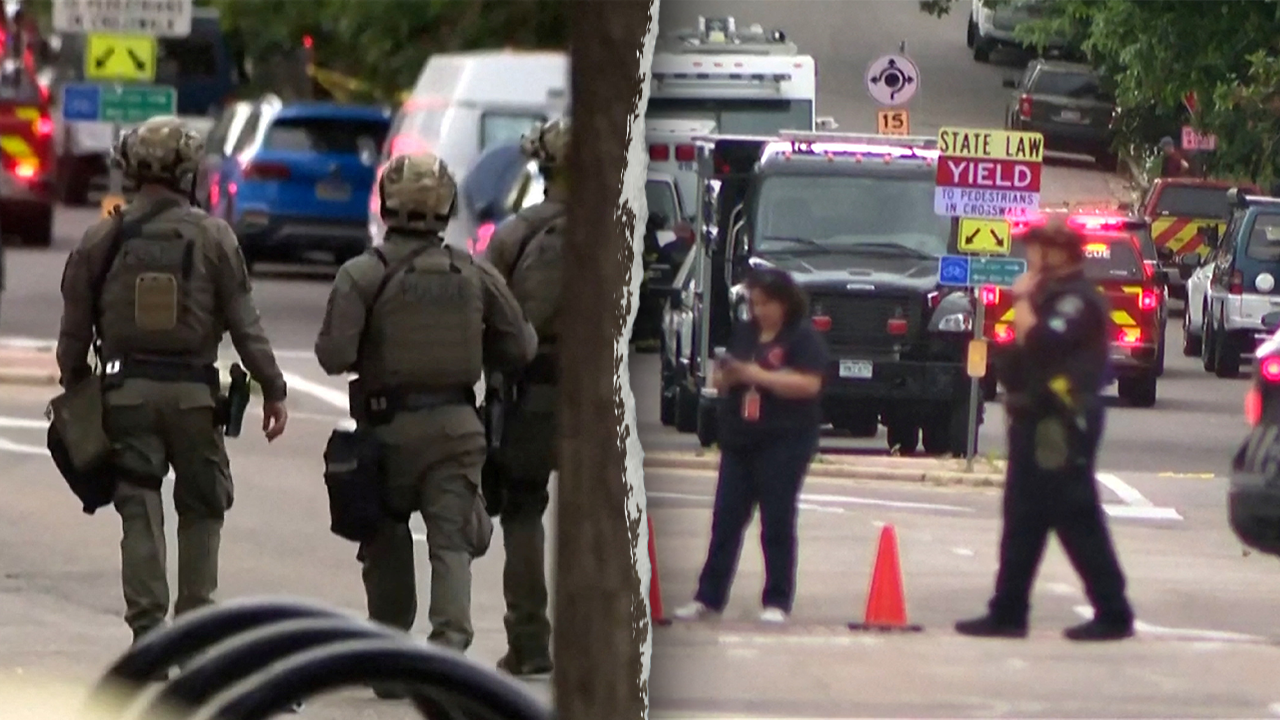Mississippi
15-year-old prodigy from Coastal Mississippi now a first-year law student at Loyola University
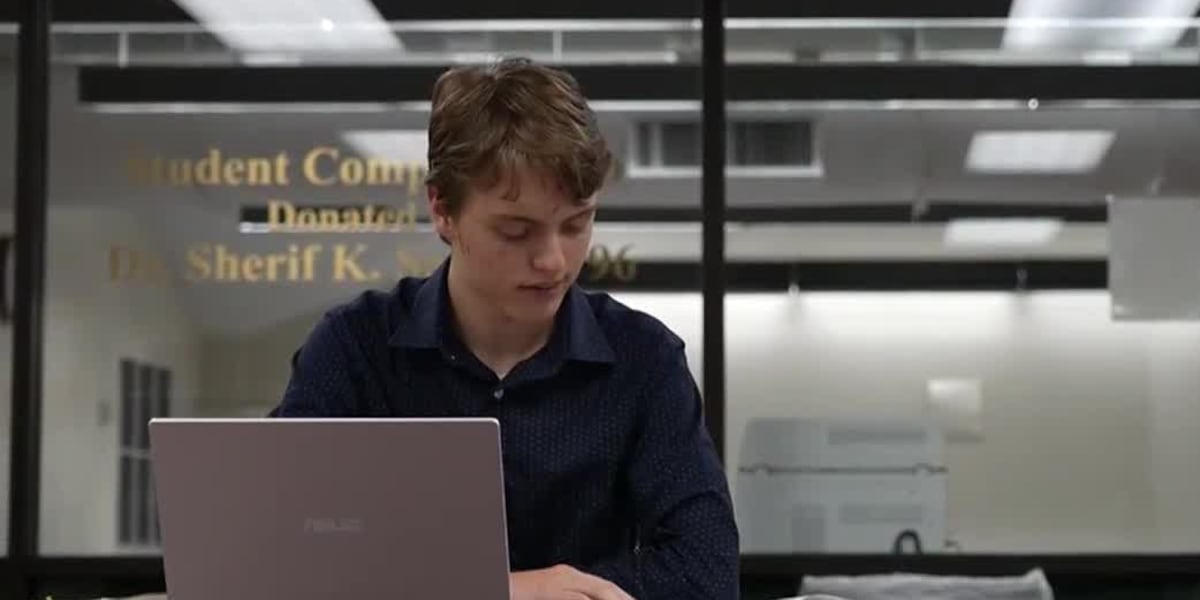
NEW ORLEANS (WVUE) – Jimmy Chilimigras holds a bachelor’s degree, master’s degree, passed his CPA exam, and is now attending Loyola College of Law.
He’s also 15 years old.
“I’m happy with what I’ve done but I’m mainly just staying focused on what’s next, you know?”
Chilimigras has been described as a “once-in-a-generation” talent, graduating from high school at 12 years old. He said his father homeschooled him before he went on to study accounting for his undergraduate and graduate degrees at Western Governors University, an online college.
“I do like academia. It’s a lot of fun for me,” he said. ‘It’s all I’ve ever really known. I think because of that I really just see [every day] as a normal day.”
Originally from Bay St. Louis, Chilimigras said he has five younger siblings. He said his entire family has supported him throughout his academic pursuits.
“They’ve never held me back,” he said. “I think I’ve definitely had a lot of good influences. My parents have been great, my extended family have been really supportive as well. I’ve had a lot of good mentors.”
Chilimigras said he knew he wanted to go to law school even before attending WGU.
With 200 potential picks, he said his biggest wish was to stay close to home.
“I think we really have something special down here. We have a beautiful area, we have such wonderful people,” Chilimigras said. “The community here is amazing, and I want to make my hometown proud.”
Prior to applying for law school, Chilimigras took the notoriously difficult Certified Public Accounting (or CPA) exam and passed.
It’s thought Chilimigras is the youngest person in the world to pass the exam.
“The CPA exam was probably, before law school, the most difficult thing I’d done,” he said.
After taking the CPA exam, Chilimigras scored an astounding 174 on the Law School Admissions Test (or LSAT), one of the highest scores in Louisiana, Mississippi and Alabama.
He would go on to apply, and be accepted, at the Loyola College of Law in New Orleans.
“I do like academia,” Chilimigras said. “It’s a lot of fun for me.”
Now in his first year, he said he is studying criminal law, contracts, torts, civil procedure and legal research and writing.
“Criminal law and torts are some of my favorites just because like there’s always something crazy going on,” Chilimigras said.
He said his professors and fellow students have been nothing but kind and welcoming. In that regard, his age has not been a factor.
“This summer, my admissions director sent me a text message that said, ‘Can we admit a 15-year-old?’ I said, ‘Why? Why do you ask?’” said Madeleine Landrieu, Dean of Loyola College of Law. “He can’t drive, he can’t stay in a dorm on campus, we had all sorts of housing policies we had to think about. But the answer became pretty easy: why not?”
Landrieu said, since arriving at Loyola, Chilimigras has been a beacon of intellectual curiosity.
“One of the things we try to teach our law students is the law is just a set of rules around which a society tries to co-exist with itself. That’s really what they are,” Landrieu said. “He brings a perspective to that and is going to teach us all a lot more than we teach him.”
Chilimigras said he still has his learner’s permit and carpools daily to Loyola. The days are long, but worth it, he said.
“He is a once in a level, once in a generation level talent, and it’s good for us to have him. He’s good for Loyola,” Landrieu said. “He’s going to help us all be better humans. He’s just a terrific, terrific young man.”
See a spelling or grammar error in our story? Click Here to report it. Please include the headline.
Subscribe to the Fox 8 YouTube channel.
Copyright 2023 WVUE. All rights reserved.

Mississippi
Grand opening of first Mississippi Buc-ee’s draws huge crowd

Mississippi
First Buc-ee’s in Mississippi opens to hundreds of loyal fans. See customer reactions

What to expect from Buc-ee’s before the first one opens in Mississippi
The Robertsdale, Ala., Buc-ee’s keeps people coming back. The stores have lots of food options and are known for clean bathrooms and friendly service.
PASS CHRISTIAN, Miss. — Amanda Yarborough, a schoolteacher from Long Beach, was one of the first to arrive at Buc-ee’s Travel Center on Monday, hours before the store’s 6 a.m. grand opening.
She brought her Buc-ee’s chair and sported a Buc-ee’s T-shirt and cap.
“What was I thinking?” she said, holding up a purple stainless-steel mug. “I didn’t bring a Buc-ee’s cup.”
Yarborough was one of nearly 1,000 Buc-ee’s fans who turned up for the first Buc-ee’s to open in Mississippi.
Like many other Buc-ee’s fans, she likes everything.
“It’s like the Amazon of gas stations,” she said.
At 6 a.m., hundreds stampeded the store’s opening.
The Ward family, who came from Alabama, discovered Buc-ee’s when the Leeds, Alabama, location opened.
Since 2023, the family has been to 45 stores before the Mississippi one and have the refrigerator magnets to prove it.
“We’re celebrating our 50th anniversary in two weeks, so this is kind of our pre-anniversary celebration,” Darlene Ward said, pointing to her husband, Charlie.”
The couple came from Boaz, Alabama, with their daughter Angela, who lives in Livingston, Alabama.
The family plans to visit the Robertsdale, Alabama, store on the way home.
“That will make 47 Buc-ee’s,” Angela Ward said.
Fifteen-year-old Scott Brown of Gautier dressed up in a Buc-ee’s onesie to celebrate the store’s opening.
“I thought it was kind of appropriate for today,” he said.
Brown said he likes the food and drinks at Buc-ee’s. One of the first things Brown and his friends did when the store opened was grab a few sandwiches. He couldnt wait. He scarfed one down before making it to the checkout counter.
Brown has been to several Buc-ee’s in Texas and Florida. Now there’s one closer to home.
“We go on cruises and we stop at every one of them,” he said.
The Mississippi location off Interstate 10 in Pass Christian is roughly 74,000 square feet — 20,000 square feet bigger than the neighboring location in Alabama. And it has 120 gas pumps, all of which were full as the store opened on Monday.
This is a developing story and will be updated.
Mississippi
Langdon and Maude Schuyler Clay capture the culture of Mississippi through the lens of a camera

- The two have spent a lifetime documenting the world around them.
Watching documentaries and reading memoirs and other works of creative nonfiction has become almost an obsession with me. My fascination is probably due to the fact that the stories being told are real and true. Learning how people overcome obstacles or create a life for themselves that is vastly different from the expected trajectory ignites my own imagination. That is especially true of creative endeavors or lives that are rooted in the pursuit of creative storytelling in one way or another.
In Mississippi, a couple living in Sumner, Mississippi, has created a life that is full, and rich, and filled with stories they’ve collected in their forty-plus years of marriage. Langdon and Maude Schuyler Clay are professional photographers who have spent a lifetime documenting the world around them, whether in an ancient cemetery in the middle of Paris or a dog on a log in a cypress swamp deep in the Mississippi Delta.
Thanks to mindless scrolling on Facebook recently, I came across a post by Maude where she mentioned that several people had asked her where they could watch Thad Lee’s documentary about them called “Two Lives in Photography.” It seems Thad is set to get a special award from the Mississippi Institute of Arts and Letters for the film on June 14. Maude also included a link to the documentary, which can be viewed on YouTube.
I have been a fan of Maude Schuyler Clay since I interviewed her years ago for an article I wrote on photographer William “Bill” Eggleston. I was somewhat familiar with Eggleston’s work. My editor gave me a list of contacts, and Maude was on that list. During our conversation, she realized I had no idea she and Eggleston were first cousins – their mothers were sisters. She explained their relationship and gave me wonderful insight for my article.
Curious, I clicked the link to the documentary and spent the next hour and a half transfixed. “Two Lives in Photography” showcases not only the work of Langdon and Maude but also the love of place that is reflected in their work as well as their love for each other.
Oxford Film Festival veteran Thad Lee directed the film, which focuses on a photography retrospective by the same name at the Mary Buie Museum on the campus of the University of Mississippi in Oxford. The exhibit was curated by Melanie Munns Antonelli. The pieces in the exhibit feature photographs taken by the couple over a span of decades, including some taken before they married.
In the film, Langdon says the couple met in 1976 at the Museum of Modern Art in New York.
“We were at a show for Bill Eggleston – his first ever color photography show.”
Maude had spent time in New York interning for Eggleston.
Lee spent three years producing the film. It begins in 2020, with Landon and Maude walking through the gallery, each relaying the stories behind the photographs, as well as describing how they, as photographers, were able to capture the photos with their respective cameras.
“Somehow you see something and you snap it, and you know you’ve got the prize,” says Langdon. “Other times you’re on a hunt. It could be for months or even years. Then you’ll see a special thing.”
Langdon is a master at seeing the symbolism in seemingly ordinary things, and that adds an interesting dynamic to his work. Maude says she has always been a proponent of photography being very much connected to literature.
“All these photos are stories,” she says in the film. “I like the idea of marrying words and images.”
She had three prominent Mississippi writers write the foreword to her books. Lewis Nordan wrote the foreword to Delta Land, Brad Watson wrote the foreword to Delta Dogs, and for Maude’s portrait book called Mississippi History, the foreword was written by Richard Ford.
The film was artfully shot by cinematographer Gregory Gray, and the hauntingly beautiful score was by Delta native Jim “Fish” Michie, best known in these parts for being one of the founders of The Tangents.
At the end of the film, Maude says, “As freelance photographers and artists, we set out without any real guarantee that our work was ever going to be shown or any of it was ever gonna be published. I think one of the commonalities that Langdon and I have is that we believed that was what we were going to do, no matter what. It has paid off, because, you know, it’s kept us occupied for the past forty years.”
For a teaser to the film, take a moment to watch this trailer. If you’re a person who enjoys learning about the stories behind the artist and their work, you will probably enjoy “Two Lives in Photography” as much as I did.
-

 Politics1 week ago
Politics1 week agoMichelle Obama facing backlash over claim about women's reproductive health
-

 West3 days ago
West3 days agoBattle over Space Command HQ location heats up as lawmakers press new Air Force secretary
-

 Finance1 week ago
Finance1 week agoHere's what will boost your feeling of financial well-being the most, researchers say
-

 Technology1 week ago
Technology1 week agoWhy do SpaceX rockets keep exploding?
-

 World1 week ago
World1 week agoTwo killed in Russian attacks on Ukraine before possible talks in Turkiye
-
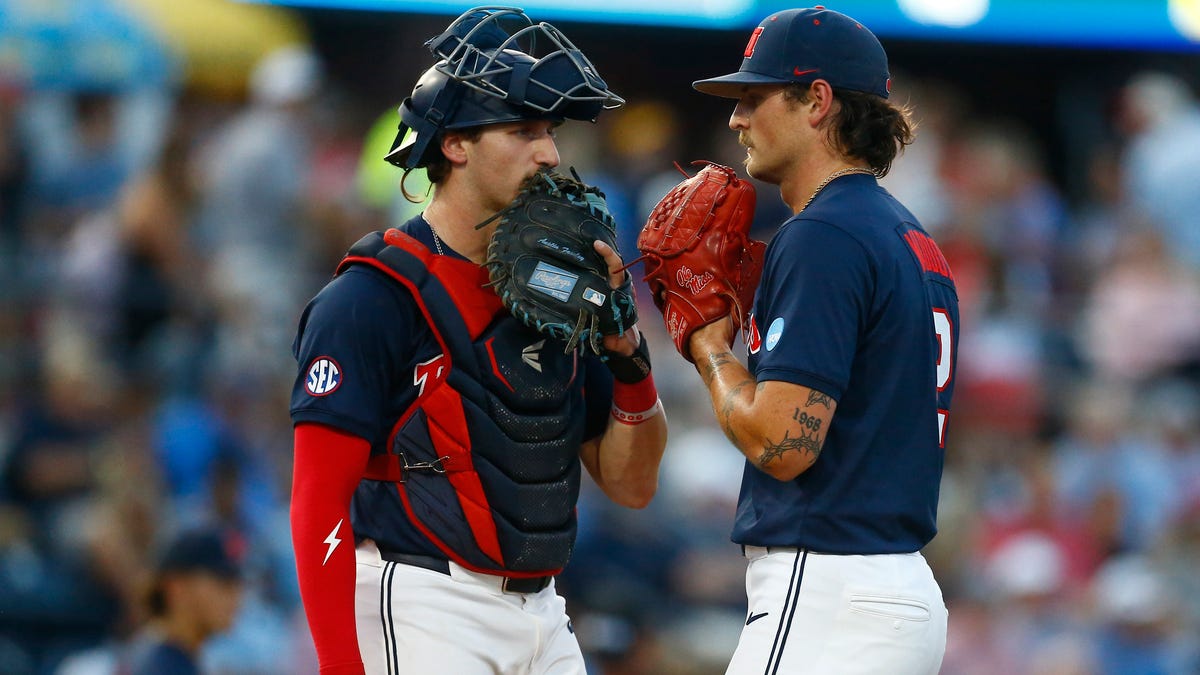
 Kentucky1 week ago
Kentucky1 week agoHow Ole Miss baseball’s pitching options will factor in elimination game vs Western Kentucky
-

 World1 week ago
World1 week agoNcuti Gatwa Bids Doctor Who Farewell as Finale Ends With a Most Surprising Twist — Grade It!
-
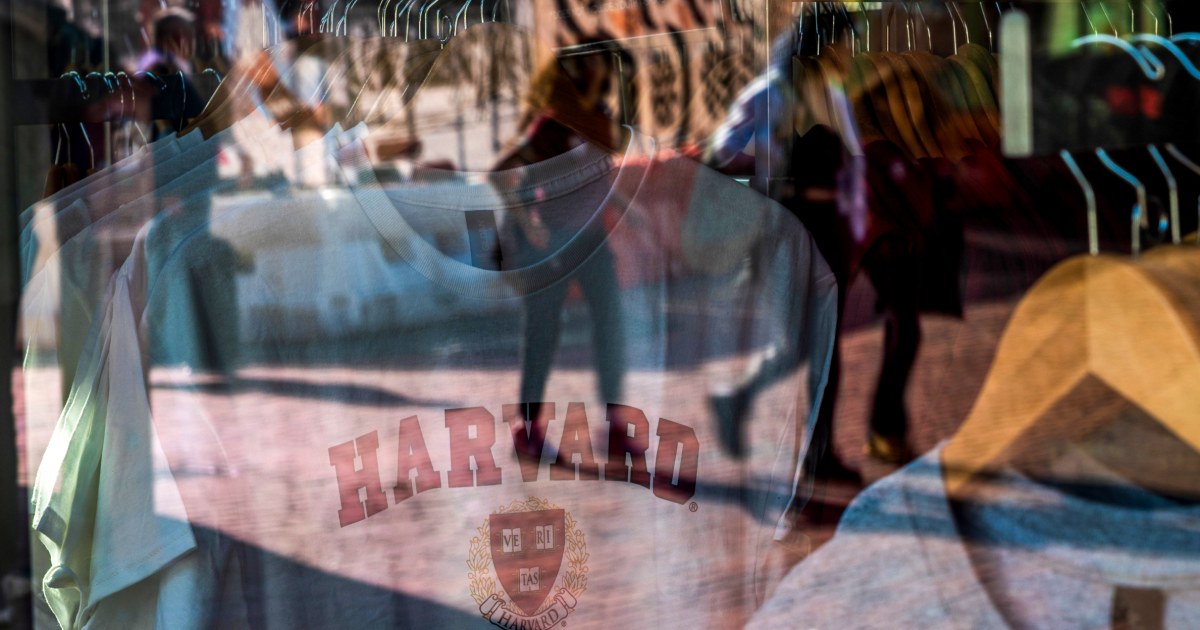
 News1 week ago
News1 week agoTrump administration continues to target international students. What to know and what could be next.


